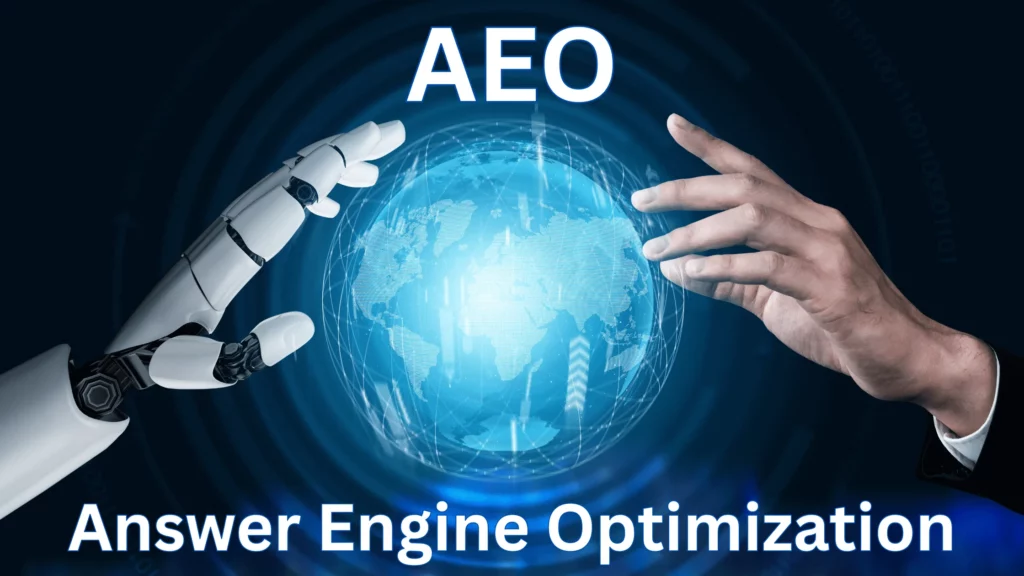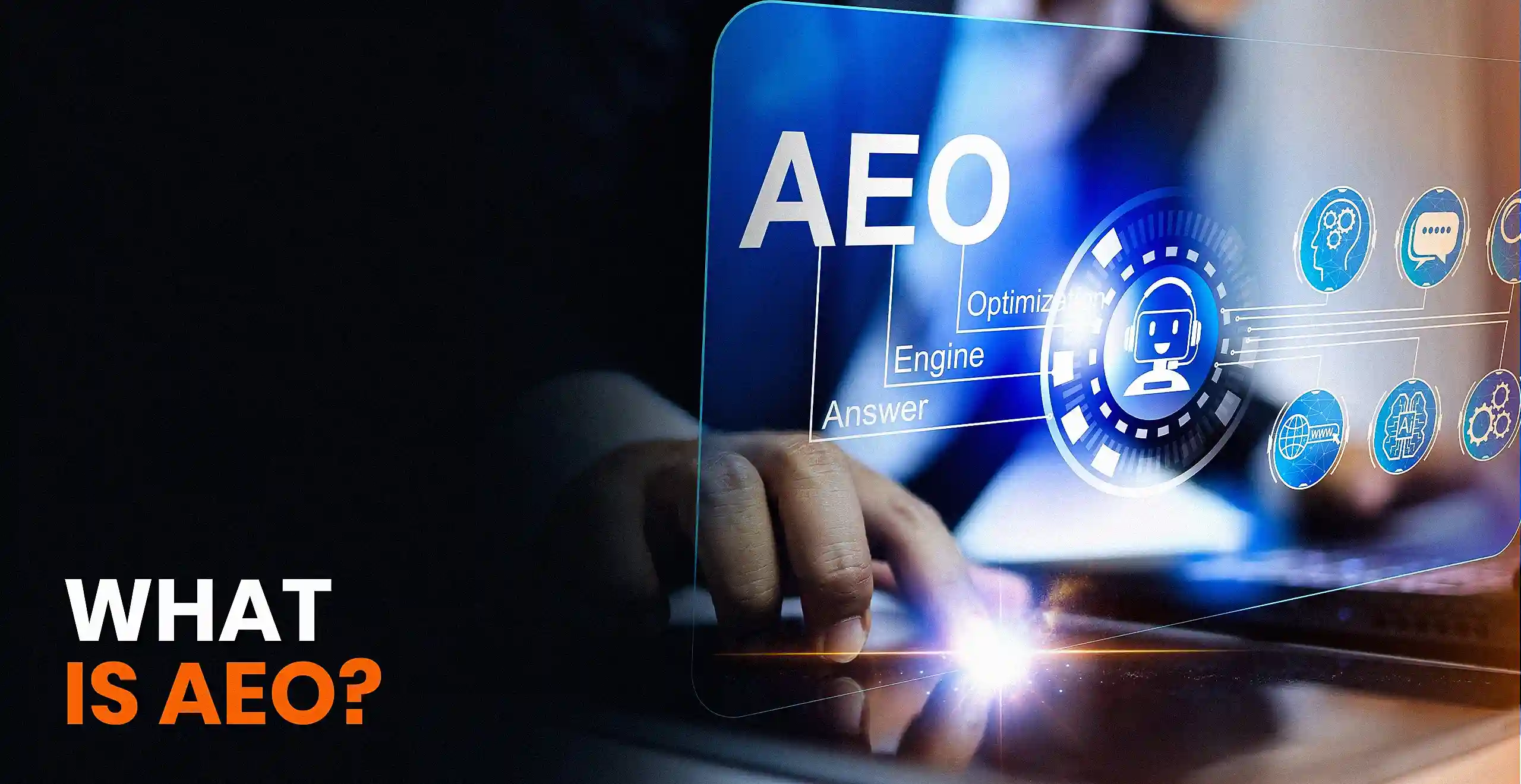What Is Answer Engine Optimisation (AEO) and Why Is It Important for Voice Search Success?
Answer Engine Optimisation (AEO) is the process of optimising content to provide direct, comprehensive answers to user queries across search engines and voice assistants. Unlike traditional SEO that focuses on driving clicks, AEO prioritises delivering immediate value through concise, authoritative responses that satisfy user intent without requiring additional navigation.
Voice search has become a dominant force in digital interaction. With over 55% of adults using voice search daily and 71% of consumers preferring voice queries over typing, businesses need to adapt to this shift in how audiences discover and engage with content. Voice assistants like Alexa, Google Assistant, and Siri now handle billions of queries monthly, creating new opportunities for brands to connect with their target audience.
The way people use voice search is different from how they type their queries. Users speak naturally, asking complete questions rather than typing fragmented keywords. This means that content needs to be created and optimised in a way that reflects human conversation patterns while still being compatible with search engines.
Brands that ignore answer engine optimisation risk being left out of voice search results. The zero-position landscape rewards content that directly addresses user questions with clear, structured responses. Companies that invest in AEO strategies will have an advantage in this changing search environment, attracting valuable voice traffic while their competitors struggle with outdated optimisation methods.
How Can an AEO Optimisation Agency Help You Stand Out in the Voice Search Arena?
An AEO optimisation agency brings specialised expertise that most in-house teams lack. These agencies possess deep understanding of voice search algorithms, natural language processing patterns, and the technical nuances required to capture featured snippets across different voice assistants.
Voice search optimisation presents unique challenges that traditional SEO teams struggle to navigate:
- Complex query interpretation – Voice searches use natural, conversational language that requires sophisticated content structuring
- Multi-platform optimisation – Different voice assistants (Alexa, Google Assistant, Siri) have varying ranking factors and content preferences
- Real-time algorithm updates – Voice search technology evolves rapidly, demanding constant strategy adjustments
- Technical implementation barriers – Proper schema markup and structured data require specialised knowledge
Brands attempting voice search optimisation without professional guidance often miss critical opportunities. They may create content that sounds natural to humans but fails to trigger voice assistant responses, or implement technical elements incorrectly, rendering their efforts ineffective.
A dedicated voice search strategy developed by specialists addresses these pain points systematically. Agencies provide access to advanced tools for voice search tracking, competitor analysis, and performance measurement that aren’t readily available to individual businesses.
The competitive advantage becomes clear when comparing brands with professional AEO support against those relying solely on traditional SEO approaches. While competitors struggle with voice search visibility, agency-supported brands consistently capture more voice-driven traffic and establish stronger positions in answer engine results.
1. Understanding Conversational Queries: Why Do They Matter for Voice Search Optimisation?
Conversational queries are the natural, spoken language patterns people use when talking to voice assistants. Unlike traditional text searches that rely on broken keywords, voice searches mimic real human conversations with complete sentences and contextual subtleties.
Voice search behaviour is fundamentally different from typing habits. Users ask full questions like “What’s the best Italian restaurant near me that’s open now?” instead of typing “Italian restaurant near me open.” This change requires a complete overhaul of your voice search content strategy.
The conversational nature introduces several critical elements:
- Context dependency: Voice queries often refer to previous conversations or implied locations
- Natural language patterns: Users use informal language, filler words, and various sentence structures
- Question-based formats: Most voice searches start with question words like “how,” “what,” “where,” or “when”
- Local intent: Voice searches often include location-specific requirements
This shift in user behaviour towards voice search is not just a trend but a significant change in consumer behaviour as outlined in this article about how voice search is changing consumer behaviour. AEO agencies specialise in understanding these conversational patterns, adapting your content to align with how people actually speak rather than how they type.
2. Crafting Question-Based Content: How Does It Enhance Your Chances of Ranking in Voice Search Results?
Voice assistants prioritise content that directly answers specific user questions with clear, concise responses. Question-based content serves as the foundation for voice search rankings because it mirrors how people naturally speak when using voice commands.
Effective question-based content formats include:
- FAQ sections that address common customer queries with direct answers
- How-to guides structured around step-by-step solutions
- “What is…” definitions that provide immediate explanations
- Comparison articles answering “which is better” queries
The key lies in anticipating the exact phrasing users employ when speaking to their devices. Rather than targeting broad keywords, successful voice search rankings depend on content that matches natural speech patterns. For instance, instead of optimising for “best pizza London,” create content answering “Where can I find the best pizza in London?”
AEO optimisation agencies excel at identifying these question patterns through advanced research tools and user behaviour analysis. They understand that voice search users expect immediate, actionable answers rather than lengthy explanations, making precise content structuring essential for capturing featured snippets and voice search results.
See Also : Why Working with an AEO Marketing Agency in Sydney Delivers Global Results
3. Leveraging Structured Data Markup: What Role Does It Play in Optimising Your Content for Voice Assistants?
Structured data markup acts as a link between your content and search engines, allowing voice assistants to extract specific information for spoken replies. Schema markup converts unstructured content into formats that machines can read, which voice assistants can then understand and deliver as direct answers.
Voice assistants depend heavily on structured data to find the most relevant pieces of information. By using schema markup, you’re essentially creating a guide that helps AI systems find and comprehend the context, meaning, and relationships of your content.
Important schema types for optimising voice assistants include:
- FAQPage schema – Ideal for question-answer content that matches conversational queries
- HowTo schema – Perfect for step-by-step guides that voice assistants can read aloud
- Article schema – Helps classify and provide context to your content
- LocalBusiness schema – Crucial for location-based voice searches
Implementing these schema types greatly improves your content’s visibility in voice search results. Voice assistants prefer content with clear structural indicators, making properly marked-up pages more likely to be chosen as trusted sources for spoken replies.

4. Integrating AEO with Traditional SEO Strategies: Why Is It Essential for Capturing Zero-Click Traffic?
Traditional SEO focuses on driving users to click through to your website, whilst AEO prioritises providing immediate answers that satisfy user queries directly within search results. This fundamental shift addresses the growing trend of zero-click searches, where users receive their answers without visiting any website.
The SEO vs AEO distinction becomes crucial when considering user behaviour patterns. Traditional SEO optimises for:
- Click-through rates and website traffic
- Keyword rankings on search engine results pages
- Page authority and backlink acquisition
AEO strategies target different outcomes:
- Featured snippet placements that answer queries instantly
- Voice assistant responses that provide direct information
- Knowledge panel appearances that establish authority
An AEO optimisation agency understands how to balance both approaches effectively. They create content that satisfies immediate user needs through concise, structured answers whilst maintaining pathways for deeper engagement. This dual strategy captures the 50% of searches that result in zero clicks while preserving traditional traffic sources, maximising your visibility across all search behaviours.
5. The Power of Ongoing Auditing and Competitor Analysis: How Can It Fuel Your Voice Search Success?
Ongoing content auditing reveals critical gaps in your voice search performance that static analysis simply cannot detect. Voice search algorithms evolve rapidly, meaning content that ranked well last month may now struggle to capture featured snippets or answer boxes.
Professional AEO agencies conduct systematic audits that track:
- Query performance shifts – monitoring which conversational queries your content successfully captures
- Featured snippet losses – identifying when competitors overtake your positions
- Content freshness gaps – spotting outdated information that voice assistants bypass
Competitor analysis for AEO uncovers strategic opportunities your internal team might miss. Agencies examine how rivals structure their FAQ sections, implement schema markup, and target long-tail conversational queries.
This intelligence reveals:
- Untapped question clusters competitors haven’t addressed
- Schema implementation weaknesses in competitor content
- Content format preferences that voice assistants favour
Regular auditing combined with competitive intelligence creates a dynamic optimisation cycle. Agencies identify emerging voice search trends before they become saturated, positioning your content ahead of market shifts rather than reacting to them.
6. Ensuring Technical Readiness: What Are The Key Technical Factors That Support Effective Voice Search Optimisation?
Technical SEO readiness is the foundation of successful voice search optimisation. Voice assistants prioritise websites that provide instant and seamless user experiences, making technical excellence essential.
Mobile Optimisation for Voice Search
Mobile optimisation for voice search is the most critical factor, as 58% of voice searches happen on mobile devices. Your website must load within three seconds on mobile networks because voice assistants completely abandon slower sites. Responsive design ensures content looks perfect on all screen sizes, while accelerated mobile pages (AMP) can boost loading speeds by up to 85%.
Core Technical Elements
The following core technical elements are crucial for effective voice search optimisation:
- HTTPS security – Voice assistants prefer secure connections
- Clean URL structures – Simple and descriptive URLs improve crawlability
- Optimised images – Compressed image files reduce loading times
- Minimal redirects – Each redirect adds valuable milliseconds to loading time
Server Response Times
Server response times below 200 milliseconds create the best environment for voice search success. Professional AEO agencies have the technical expertise to systematically audit these elements and identify any bottlenecks that could prevent your content from appearing in voice search results.
7. Measuring The Impact: What Are The Tangible Benefits You Can Expect From Working With An AEO Optimisation Agency?
Professional AEO agencies deliver measurable results that transform your voice search performance. Businesses working with specialised agencies typically see 35-50% increases in voice/AI-driven traffic growth within six months of implementation.
The benefits of hiring AEO agency services extend beyond basic visibility improvements:
- Featured snippet captures increase by 40-60% when AEO strategies complement traditional SEO efforts, significantly enhancing your chances of achieving position zero.
- Zero-click traffic rises by 25-35%, positioning your brand as the authoritative answer source and leading to a surge in zero-click searches.
- Local voice search visibility improves by 45% for location-based queries
- Brand mention frequency grows by 30% across voice assistant responses
Data from recent industry studies reveals that companies combining AEO with conventional SEO strategies achieve 23% higher click-through rates compared to those using traditional methods alone. Voice search optimisation also generates 18% more qualified leads, as users conducting voice searches demonstrate higher purchase intent.
Agency partnerships provide access to advanced analytics tools that track voice search performance metrics invisible to standard SEO reporting. These insights reveal which conversational queries drive traffic, enabling continuous refinement of your content strategy for sustained growth.

Why Should You Prioritise Continuous Collaboration With An AEO Agency For Long-Term Voice Search Success?
Voice search technology evolves at breakneck speed, with AI advancements reshaping how users interact with search engines monthly. A long-term partnership with AEO agency specialists ensures your brand stays ahead of these rapid changes rather than constantly playing catch-up.
The landscape shifts dramatically as voice assistants become more sophisticated. Google’s AI updates, Amazon Alexa’s expanding capabilities, and emerging voice technologies create new opportunities and challenges that require expert navigation. AEO agencies monitor these developments continuously, adapting strategies before competitors recognise the need for change.
Proactive optimisation beats reactive responses every time. Brands treating voice search as a one-off project miss crucial algorithm updates, new schema markup opportunities, and shifting user behaviour patterns. Regular collaboration with AEO specialists transforms voice search from a checkbox exercise into a competitive advantage.
Consider voice search optimisation as infrastructure investment rather than marketing expense. The 7 Reasons an AEO Optimisation Agency Is Essential for Voice Search Success compound over time through:
- Continuous content refinement based on emerging query patterns
- Technical optimisation aligned with latest voice search requirements
- Strategic positioning ahead of algorithm changes
- Performance monitoring and adjustment cycles
Smart brands recognise that voice search dominance requires sustained expertise, not sporadic attention. Partner with specialists who live and breathe AEO developments daily.







